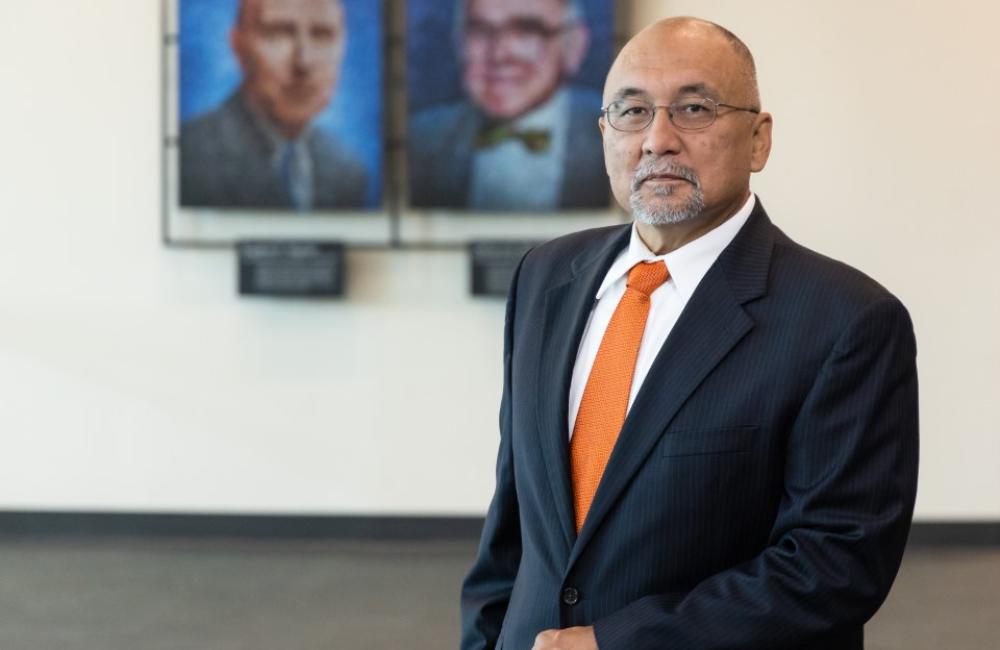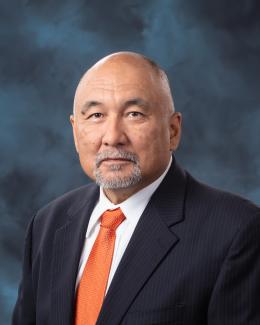Jim Placke is director of ISED's new Isotope Processing and Manufacturing Division (IPMD).
The division Jim Placke oversees is brand new.
But the mission it serves has been steadily growing for years.
Placke, who started in June, heads the Isotope Processing and Manufacturing Division, formed to separate manufacturing from research and development in order to meet the nation’s growing demand for the domestic production of isotopes for medicine, research, industry and national security.
Coming to ORNL from the Y-12 National Security Complex, Placke has a background that encompasses both manufacturing and R&D.
“I worked in Y-12 production for more than four years, and I also led the Y-12 Development organization,” said Placke, who joined Y-12 in 2008. “In Development, we had a very similar goal in mind: to separate our production efforts from our R&D efforts. So this is right in my wheelhouse.”
At Y-12, Placke often served as a change agent to improve organizational performance. With IPMD, however, he has the opportunity to be involved with the new division from the very start.
“It’s a chance to use what I’ve learned from past experiences to build a new organization from the foundation up,” Placke said.
The mission, too, appeals to him.
“We’re making medical isotopes that are having a tremendous impact on improving people’s health and well-being.” Placke said. “When you receive letters from people whose lives were saved because of an isotope that we’ve made, that’s indicative of the power, impact and importance of our work.
“We are also providing the material for the radioisotope thermoelectric generators, or RTGs, supporting NASA’s space exploration mission. How cool is that?”
With staff drawn from NNFD and RSTD, as well as newly hired, IPMD will be focused on developing and improving routine production processes and isotope quality – of growing importance in a time when the United States is trying to reduce reliance on Russian and other foreign suppliers for critical isotopes.
“It is critical that we meet the nation’s need by having a steady supply of crucial isotopes that are produced as efficiently as possible,” Placke said.
As division head, he said, he’ll strive to build trust among IPMD staff.
“Once you have trust, you can build relationships,” he said. “Once you have the relationships, you can work together in a really efficient manner to accomplish whatever goals you set out to achieve. If you can’t build those relationships, you’re not going to have an effective organization.”
At Y-12, Placke held various positions, including director of development for mission engineering, director of enriched uranium operations for production operations, director of quality technical services and laboratory director of analytical chemistry organization for quality assurance, manager of nuclear nonproliferation and global security programs, and manager of defense and homeland security programs for the Global Security Directorate.
Placke is a native of Paris in West Tennessee but grew up an “military brat,” he said, living around the world as his father served in the U.S. Air Force.
Prior to coming to Y-12, he held a variety of nuclear security and military positions, including one at Fort Belvoir, Va., that sometimes brought him to ORNL and Y-12.
A U.S. Army veteran, Placke also found time to earn a Bachelor of Science degree in engineering and a Master of Business Administration degree from the University of Tennessee, a Master of Public Administration degree from Jacksonville State University in Alabama, an educational specialist degree from Lincoln Memorial University in Harrogate, Tenn., and master’s and doctoral degrees in chemical engineering from Vanderbilt University.
Placke’s wife of 38 years, Diane, is involved in volunteer work for various organizations and sometimes involves him. He enjoys his 1957 Chevrolet hardtop, collecting military insignia, and visiting his adult daughter who works at Austin Peay University in Clarksville.
He describes his management style as “servant leader” and said his goal is to build a cohesive team and a culture where excellence is the standard.
“I’m a firm believer in work-life balance,” he said, “especially for families who still have young children.” He said his intention is to try to make sure employees have time to spend with family, even if it means longer hours for him.
“I’m in a different stage of my life,” Placke said. “I can make the time investment in the organization.”
UT-Battelle manages ORNL for the Department of Energy’s Office of Science, the single largest supporter of basic research in the physical sciences in the United States. The Office of Science is working to address some of the most pressing challenges of our time. For more information, please visit energy.gov/science.




